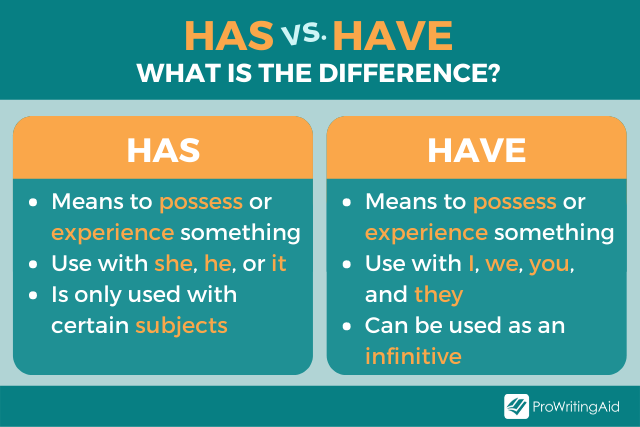Thinking about which nation holds the most powerful navy is a big question, one that brings up many ideas about what makes a sea force truly great. It's not just about counting ships, as you might think. A country's naval reach is a key part of its overall standing in the world, influencing trade routes, protecting distant interests, and sometimes, simply showing a presence. This idea of sea power, really, has been a significant thing for a very long time, shaping how different places connect and interact.
When we talk about something as important as who has the strongest navy, it really matters that we get our words right. It's a bit like those times when you're trying to figure out if you should say 'has' or 'have' in a sentence, you know, making sure the verb agrees with the subject. Getting that language just so helps everyone understand the big picture, making sure we are all on the same page about what makes a naval force truly capable. It's not just about the numbers, but how we describe those numbers and what they mean.
So, we're going to explore what goes into making a navy powerful. We will look at more than just the size of a fleet. We'll think about the people who serve, the kind of ships they operate, and even how well they train. It's a pretty interesting topic, and there are many parts to it, as a matter of fact, that you might not consider at first glance. We'll try to give you a good sense of the various elements that come together to define a truly formidable naval power.
- Rockstar Pina Colada
- 1920 Casual Fashion
- Milo Manheim Young
- Rulon Jeffs How Many Wives
- Shortest Player In The Nfl Currently
Table of Contents
- What Makes a Navy Powerful?
- How Do We Measure Naval Might?
- Beyond the Numbers - Who Has Strongest Navy?
- The Human Element - People Behind the Ships
- Looking at Ship Types - What Counts?
- Is Technology the Only Factor for Who Has Strongest Navy?
- The Role of Training and Preparedness
- Global Reach and Influence
What Makes a Navy Powerful?
When people think about a strong navy, they often picture many ships, maybe big ones like aircraft carriers. But that's just one piece of the puzzle, you know? A truly powerful naval force has many different parts working together. It’s a mix of its equipment, the skills of its people, and even how well it can keep its ships ready to go. The ability to perform various tasks across the world's waters is also a pretty big deal. It's about more than just the number of vessels; it’s about their quality and how they can be used.
Understanding the Core of Naval Strength for Who Has Strongest Navy
At its heart, naval strength is about having the means to protect a country's interests at sea. This could mean keeping shipping lanes open for trade, helping out in times of trouble, or even showing that a nation has a say in what happens far from its shores. It requires ships that can handle different situations, from calm seas to rough weather. Also, the people operating these vessels must possess the necessary abilities to do their jobs well. It's a complex set of requirements, really, that goes into building a navy that truly stands out.
How Do We Measure Naval Might?
Figuring out which navy is the most powerful can feel a bit like trying to solve a puzzle with many pieces. You can count the ships, of course, and that gives you a basic idea. But then you have to think about what kind of ships they are. Is it a huge number of small patrol boats, or a smaller number of very large, capable warships? So, just adding up the ships doesn't quite tell the whole story. It's a starting point, but there's much more to consider, you know, when you're trying to get a full picture.
- Kanye Wife Grammys 2025 Outfit
- Samantha Judge Height
- Short Message To My Grandchildren
- What Is Dennis Rodman Net Worth
- Indian Couple
Counting Ships and Their Capabilities - Who Has Strongest Navy
When we look at naval power, we often consider different kinds of ships. There are the big ones, like aircraft carriers, which can launch planes from the sea. Then there are submarines, which can move unseen below the surface. There are also destroyers and frigates, which are good for protecting other ships or carrying out various tasks. Each type of ship has a different job, and a navy that has a good mix of these, and can keep them in good working order, tends to be more versatile. It's about having the right tools for the right tasks, basically, to manage different situations at sea.
Beyond the Numbers - Who Has Strongest Navy?
It's easy to get caught up in how many ships a country has, or how big they are. But the true measure of a navy goes beyond simple counts. It's about how those ships are used, where they are placed, and what kind of plans the people in charge have for them. A smaller navy, if it's used cleverly and has a clear idea of what it needs to do, can sometimes be more effective than a much larger one that lacks direction. So, it's not just about having a lot of things, but about how those things are put to use, you know, in a practical sense.
The Importance of Strategic Thinking
A navy's strength also comes from its ability to think ahead and plan for different situations. This means understanding the world's oceans, knowing where ships might be needed, and having ways to get them there quickly. It also involves having good information about what other navies are doing and how things are changing around the globe. This kind of thoughtful planning helps a navy be ready for whatever comes its way, making it a more dependable force. It's about having a good sense of what's happening, and what might happen, to be ready.
The Human Element - People Behind the Ships
No matter how many ships a navy has, or how impressive they might look, they are just pieces of metal without the people who operate them. The sailors, officers, and support staff are truly the heart of any naval force. Their skills, their dedication, and their ability to work as a team are absolutely important. A well-trained crew can make even an older ship perform well, while a poorly trained crew might struggle even with the most modern vessel. It's the human factor, you know, that often makes the biggest difference.
Training and Dedication for Who Has Strongest Navy
The quality of a navy's training programs is a very big part of its overall capability. Sailors need to know how to handle their ships, use their equipment, and respond to unexpected events. This means spending a lot of time learning and practicing, often in difficult conditions. It's not just about learning how to do things, but also about building a sense of teamwork and trust among the crew members. When people work together smoothly, they can overcome many challenges, and that's a pretty important thing for any group working on the sea.
Looking at Ship Types - What Counts?
When people talk about naval power, they often focus on the biggest, most visible ships, like those huge carriers that carry airplanes. But a navy's real usefulness comes from having a good mix of different kinds of vessels, each with a specific job. A navy that only has one type of ship, even if it's a very impressive one, might not be as useful in all situations. It’s like having a toolbox with only one kind of wrench; it might be a good wrench, but it won't help with every task, you know? A variety of tools is usually better.
Different Vessels, Different Roles for Who Has Strongest Navy
Consider the roles different ships play for who has strongest navy. Aircraft carriers, as mentioned, let a country project air power far from home. Submarines, on the other hand, offer a hidden presence and can operate without being seen. Destroyers and frigates are often used for escorting other ships, protecting them from threats, or carrying out various missions on their own. Smaller patrol boats are good for keeping an eye on coastal waters. A navy that has a good balance of these different types of vessels can handle a wider range of duties, making it a more complete and capable force.
Is Technology the Only Factor for Who Has Strongest Navy?
In our modern world, it's easy to think that the newest and most advanced technology is the only thing that matters for a strong navy. Having good radar systems, precise weapons, and ships that can avoid detection certainly helps. But technology alone doesn't make a navy the strongest. An older ship, if it's well-maintained and has a skilled crew, can sometimes perform better than a newer one that isn't used properly. So, while new gadgets are nice, they aren't the whole story, you know, when it comes to real-world performance.
The Blend of Innovation and Experience
The best navies seem to find a good mix between adopting new ideas and holding onto the lessons learned from the past. They use new ways of doing things to improve their ships and systems, but they also value the practical knowledge of their experienced sailors. It's about understanding how to make the most of what you have, whether it's the latest piece of equipment or a tried-and-true method. This combination of looking forward and remembering what works is pretty important for keeping a navy effective and ready for anything.
The Role of Training and Preparedness
A navy's ability to be ready for anything comes down to how well its people are trained and how often they practice. It's not enough to just have the ships and the people; they need to know how to work together as a unit, under all sorts of conditions. This means regular drills, exercises with other nations, and constant learning. The world's waters can be unpredictable, so a navy must be able to adapt quickly to new situations. This kind of readiness is, you know, absolutely vital for success.
Keeping Skills Sharp for Who Has Strongest Navy
Think of it like any other skill; if you don't use it, you might lose it. For naval personnel, keeping their abilities sharp means constant practice. This includes everything from how to steer a ship in a storm to how to respond to an unexpected event. It also means staying current with new ways of doing things and understanding how different parts of the navy work together. A navy that puts a lot of effort into ongoing education and practice is generally a more dependable and capable force for who has strongest navy.
Global Reach and Influence
A truly strong navy isn't just able to defend its own coastlines; it can also operate far from home, if needed. This ability to send ships across oceans, to stay at sea for long periods, and to work with other countries is a big part of what makes a navy powerful on a world scale. It shows that a nation has the resources and the will to protect its interests and support its allies wherever they may be. This kind of presence can be a very powerful tool, actually, in shaping events around the globe.
Projecting Power and Presence for Who Has Strongest Navy
When a navy can operate far from its home waters, it sends a message. It shows that a country is able to act beyond its immediate borders. This might involve participating in international efforts to keep the peace, helping out during natural disasters, or simply showing a flag in important shipping areas. The ability to maintain ships and crews far from their usual bases requires a lot of support, from fuel to spare parts to fresh food. A navy that can manage all these things, and keep its people ready, truly has a significant global presence.
- Natalie Dyer Age
- Film Quotes About Life
- Baby French Girl Names Meaning Blue
- Taylor Russell Age
- Turning Avast Off



Detail Author:
- Name : Maynard Senger DDS
- Username : edythe.strosin
- Email : lynch.cary@goyette.com
- Birthdate : 2005-08-13
- Address : 6777 Elizabeth Cape Suite 230 Lake Verner, PA 04795
- Phone : (934) 373-8453
- Company : Witting, O'Reilly and Littel
- Job : Structural Metal Fabricator
- Bio : Et magni velit qui labore ea alias unde. Et qui nisi non asperiores ullam vitae illo. Cum quas corporis recusandae dolor. Id veritatis est molestiae.
Socials
instagram:
- url : https://instagram.com/toni.okuneva
- username : toni.okuneva
- bio : Dolor provident sint ipsum et. Qui rem non magnam fugiat hic.
- followers : 4542
- following : 383
tiktok:
- url : https://tiktok.com/@toni_real
- username : toni_real
- bio : Omnis aut facilis velit quibusdam.
- followers : 2125
- following : 1036
twitter:
- url : https://twitter.com/toni.okuneva
- username : toni.okuneva
- bio : Recusandae blanditiis consequatur sit quia nisi. Magnam dignissimos in repudiandae ut non.
- followers : 3818
- following : 2140
facebook:
- url : https://facebook.com/toni3656
- username : toni3656
- bio : Asperiores officia qui facilis illo minus atque.
- followers : 1521
- following : 12
linkedin:
- url : https://linkedin.com/in/toni_okuneva
- username : toni_okuneva
- bio : Tempora quia eligendi nesciunt quis qui.
- followers : 1916
- following : 2046
